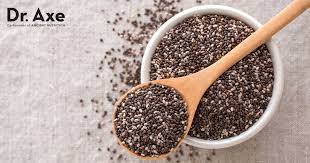Most people that lose weight gain some or even all of it back. If you’ve worked hard to get to your goal weight is it inevitable that you’ll experience a regain?
That’s a hard question and unfortunately research hasn’t been able to provide us with an absolute answer. There is even some confusion as to whether weight regain is due to a shift in metabolism and hormones or if people simply drift back into the old habits that made them overweight in the first place.
It’s probably a combination of the body’s natural tendency to want to return to its ‘normal’ weight and the dieter returning to their before-weight-loss eating patterns. Referred to as yo-yo dieting, the weight losses and gains can take a toll on a person’s physical and emotional well being.
First, let’s take a look at what science is able to tell us.
Research Provides Some Insight
There are a number of studies that show that dieting is associated with accelerated weight gain and an increased risk of becoming overweight. Evelyn Tribole, MS, RD, wrote an article, Warning: Dieting Increases Your Risk of Gaining MORE Weight, for Intuitive Eating Disorders.com. Tribole’s article discusses a concept known as dieting-induced weight-gain that scientists believe is contributing to the obesity epidemic.
Dieting-induced weight-gain suggests that, independent of genetics, dieting prompts weight gain. And, a cycle of weight-loss, followed by weight-gain, followed by another round of weight-loss pushes the baseline weight higher than the original weight.
The article cites several studies that show that dieting teenagers have twice the risk of becoming overweight. It also says the risk of binge eating increases with dieting and up to two-thirds of people that lose weight regain even more than they lost.
Some researchers believe the predisposition to regain lost weight is caused by nerves in the stomach that become damaged [in obese people] so that they no longer signal the brain to tell it when the person is full. One study out of the University of Adelaid in Southern Australia looked specifically at the effects of a high fat diet on the stomach’s ability to send fullness cues to the brain.
This study reported that even when people begin eating a healthier diet the signaling did not improve, nor did it improve with weight loss. What this means is that an individual who has lost a significant amount of weight would still not realize that they were full in time to prevent overeating.
Dieting Is A Slippery Slope
Trying to determine why people that lose weight will, more than likely, gain it back is a challenge. Hormones, the hunger control mechanism, and resetting of the metabolic rate may all be factors however the primary reason for regain is probably more about behavior change than people would like to admit.
When you lose weight your body mass decreases which means you require fewer calories than you did when you were at your heavier weight. Through the process of dieting you suffer deprivation and your cravings for a Dilly Bar or cheesy fries go unfulfilled.
Once you lose the weight you feel great. You’re getting compliments from your friends and co-workers, and you’re buying fun clothes in a smaller size. But slowly, as you begin to get used to the new you, the old habits start to slip back in. At first it’s only for special occasions, but it doesn’t take long before you’re eating more every day than you were when you on the diet.
You’re not consuming quite as many calories as you were when you were pre-diet, so it still feels like you’re giving up something. You’re still depriving yourself. A little. But you’re eating more than your body needs to maintain the weight you’re at now.
Plus because of the lower metabolic rate and suppressed satiation response you could be taking in quite a few more calories than you need. You’re also disconnected from when to eat, what to eat and how much to eat. You second guess every morsel.
What’s The Answer?
Tribole believes the answer lies in attunement with your mind and body rather than counting calories or Weight Watchers points. She calls this process Intuitive Eating which gives you permission to eat when hungry, eat for physical rather than emotional reasons, and rely on internal hunger cues to help you determine when and how much to eat.
Intuitive Eating doesn’t sound like the quick and easy fix that dieting is but if you embrace it you will begin to develop a healthy relationship with food. To learn more about this concept check out the web site that has on-line support group at Intuitive Eating.org.
Most people determine how much weight they want to lose and a date that they want to lose it by. Throughout that time frame they are doing things in a dramatically different way. They eat less, exercise more, avoid sugary, fatty foods, and seek out motivation from friends, co-workers and the fitness instructor at the local Y.
These are things that should be done throughout our lifetime. Being at a healthy weight should be a life goal rather than a six week or six month battle with the scale.
What’s your strategy to maintain a healthy weight?




